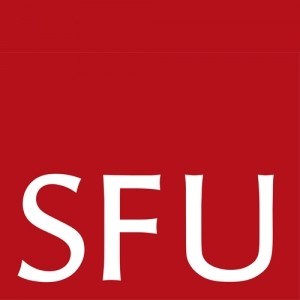Photos of university / #simonfraseru
The Bachelor of Arts in Sociology at Simon Fraser University offers students a comprehensive understanding of social behaviors, institutions, and structures that shape human society. This program is designed to equip students with critical thinking skills, empirical research methods, and theoretical perspectives necessary to analyze social phenomena. Through a diverse array of courses, students explore key topics such as social inequality, culture, globalization, social change, and urban life, enabling them to develop a nuanced understanding of the complex forces affecting societies worldwide. The program emphasizes the importance of both qualitative and quantitative research techniques, preparing graduates for careers in social research, policy analysis, community development, and other fields that require sociological expertise. In addition to classroom learning, students have opportunities to engage in community-based projects, internships, and collaborative research initiatives, fostering practical skills and real-world experience. The sociology department at Simon Fraser University is committed to fostering critical inquiry and social responsibility, encouraging students to critically evaluate societal issues and contribute meaningfully to discussions on social justice and equity. With a flexible curriculum, students can tailor their studies to their interests, exploring specialized areas such as criminology, family studies, or environmental sociology. Graduates of this program are well-equipped to pursue advanced degrees or to enter the workforce in diverse sectors including government, non-profit organizations, education, and private industry. The program's vibrant academic community, combined with its emphasis on active learning and research, makes it an ideal choice for students passionate about understanding and addressing social challenges in a rapidly changing world.
The Bachelor of Arts in Sociology at Simon Fraser University offers students a comprehensive understanding of social life, social change, and the complex structures that shape human behavior. This program provides a rigorous academic curriculum designed to develop critical thinking, analytical skills, and a deep understanding of societal issues across diverse communities and global contexts. Students will explore key topics such as social institutions, inequality, culture, deviance, and social movements, gaining insights into how societal forces influence individual and collective actions.
The program emphasizes both theoretical frameworks and empirical research methods, enabling students to analyze social phenomena critically and conduct their own research projects. Core courses include Introduction to Sociology, Social Theory, Research Methods, and Quantitative and Qualitative Analysis. In addition, students can choose from specialized electives such as Gender and Society, Race and Ethnicity, Globalization, Urban Sociology, and Environmental Sociology. This flexibility allows students to tailor their education to their interests and career goals.
Throughout the program, students are encouraged to engage in experiential learning opportunities, including internships, community projects, and research assistantships, to apply their knowledge in real-world settings. Faculty members are active researchers and dedicated educators, providing mentorship and support to help students develop their academic and professional skills. Graduates of the Sociology program are well-prepared for careers in social services, public policy, community development, research, and further studies in graduate or professional schools.
By fostering critical awareness and social responsibility, the Sociology bachelor’s degree at Simon Fraser University prepares students to become informed and active participants in society who can contribute to positive social change. The program’s combination of theoretical grounding, research training, and practical experience makes it an excellent choice for those interested in understanding and addressing complex social issues both locally and globally.
The Bachelor of Arts in Sociology at Simon Fraser University requires students to complete a total of 120 units to earn the degree. The program emphasizes foundational courses in sociological theories, research methods, and social analysis, enabling students to develop critical thinking skills and an understanding of social structures and issues. Core courses typically include Introduction to Sociology, Research Methods in Sociology, Sociological Theory, and Fields of Social Study, which provide a comprehensive overview of the discipline. Students are also encouraged to take electives within the sociology department that cover topics such as social inequality, race and ethnicity, gender, and globalization, allowing for specialization and deeper exploration of areas of interest.
To graduate, students must complete a set number of lower-division courses (usually 60 units) and upper-division courses (another 60 units), with a minimum grade requirement often set at C- or higher in all sociology courses. The program may also include a capstone project or a senior seminar, where students apply sociological theories and research skills to real-world issues. Specializations or concentrations are not formally recognized, but students are advised to choose electives that align with their career goals. A minor in Sociology can also be earned by completing at least 30 units of sociology coursework, including core and elective courses. Students are encouraged to participate in internships, research projects, or study abroad programs to enhance practical experience and global awareness. It is recommended that students meet with academic advisors regularly to plan their course schedules and ensure they meet all academic requirements for graduation.
The Bachelor of Arts in Sociology at Simon Fraser University offers a range of financial aid options to support students throughout their studies. Scholarships are available based on academic achievement, leadership qualities, and financial need, and students are encouraged to apply early to be considered for these awards. The university provides entrance scholarships for incoming students, which do not require a separate application, as well as in-course scholarships awarded to continuing students demonstrating exceptional academic performance.
In addition to scholarships, students can access various bursaries and awards designed to assist those with demonstrated financial need. The Financial Aid and Awards Office offers information on external bursaries, government assistance programs, and work-study opportunities that can supplement students’ funding. Work-study positions are available on campus, allowing students to gain work experience while earning income to help finance their education.
International students pursuing the Sociology program may have access to specific scholarships and awards tailored for international students, along with potential eligibility for provincial and federal financial aid programs. Students are advised to review the eligibility criteria and application procedures for each financial support opportunity.
Furthermore, students are encouraged to explore government loan programs such as the Canada Student Loans Program and British Columbia student grants, which provide low-interest loans and grants for eligible students. The university also facilitates financial planning and advice services, helping students to develop budgets and manage expenses effectively during their academic journey.
Overall, Simon Fraser University aims to make education accessible by providing comprehensive financial support options for Sociology students. Prospective and current students should regularly consult the university’s official Financial Aid and Awards webpage for updated information on available funding opportunities, application deadlines, and eligibility requirements. Recognizing that the cost of higher education can be significant, the university’s financial aid programs are designed to help students focus on their academic success without undue financial stress.
The Bachelor of Arts in Sociology at Simon Fraser University offers students a comprehensive understanding of social behavior, societal structures, and social change. The program provides a robust curriculum that combines theoretical foundations with empirical research methods, allowing students to critically analyze social issues both locally and globally. Students engage with core topics such as social inequality, race and ethnicity, gender, family, urbanization, deviance, and social institutions. The program emphasizes the development of critical thinking, analytical skills, and research competencies, preparing graduates for careers in social services, government, nonprofit organizations, and further graduate studies.
The Sociology program at SFU encourages experiential learning through community-based research projects, internships, and fieldwork opportunities, giving students practical experience and professional networking opportunities. The faculty includes leading scholars in sociology who actively engage in groundbreaking research, ensuring that students have access to current theories and methodologies. The program also offers optional specializations and minors, allowing students to tailor their studies to specific interests such as globalization, social policy, or qualitative and quantitative research methods.
In addition to classroom learning, students have access to various academic resources, including libraries, research centers, and seminars. The university promotes a diverse and inclusive learning environment, welcoming students from different backgrounds and fostering a global perspective. Upon graduation, students will be equipped with critical insights into social dynamics and equipped to analyze complex societal problems, making them valuable contributors to social change and policy development. With a focus on preparing students for both careers and further education, the Sociology program at SFU is designed to be flexible, comprehensive, and aligned with current societal needs.


